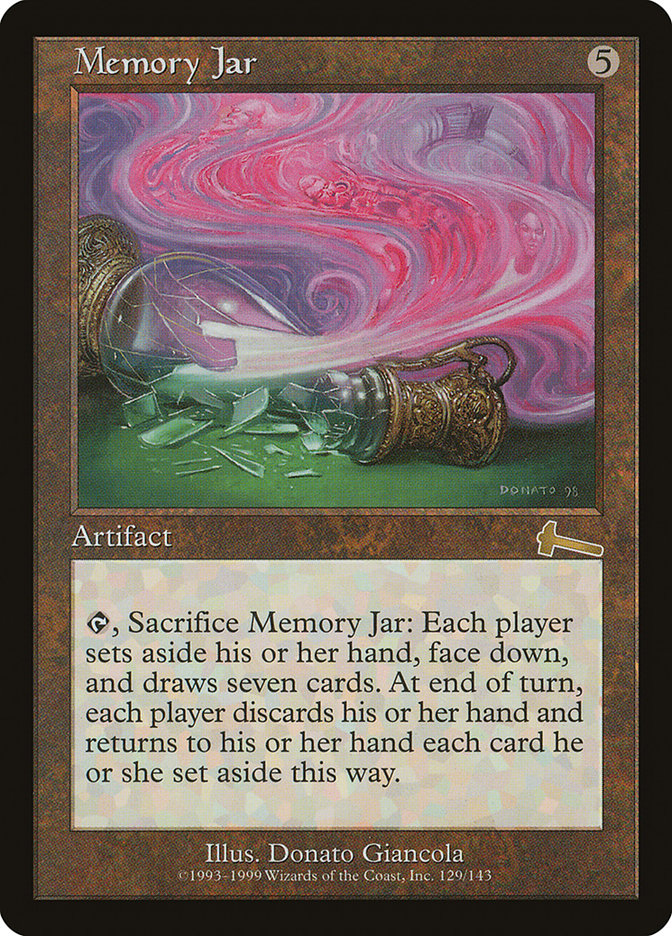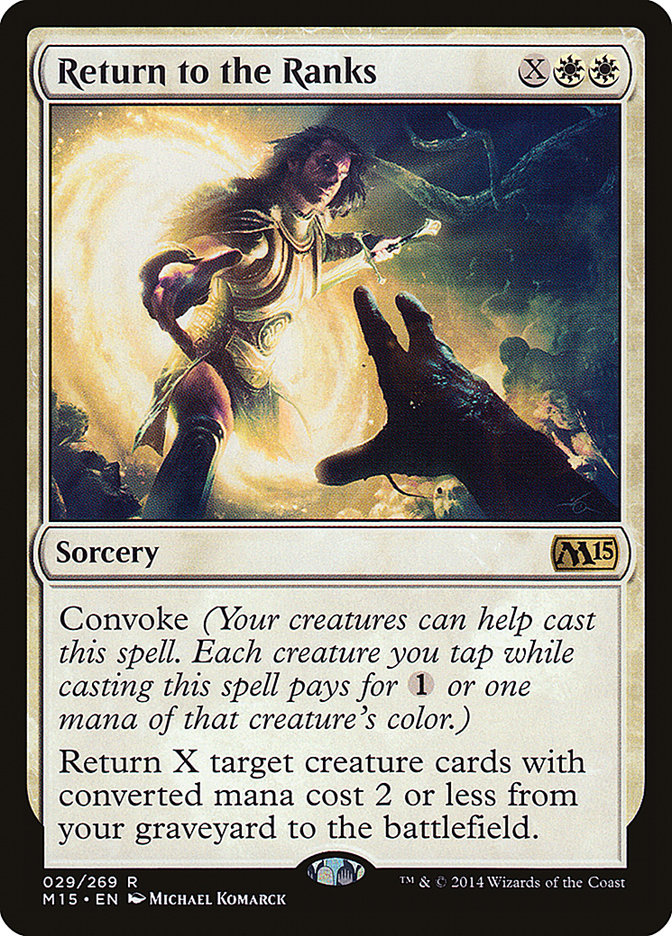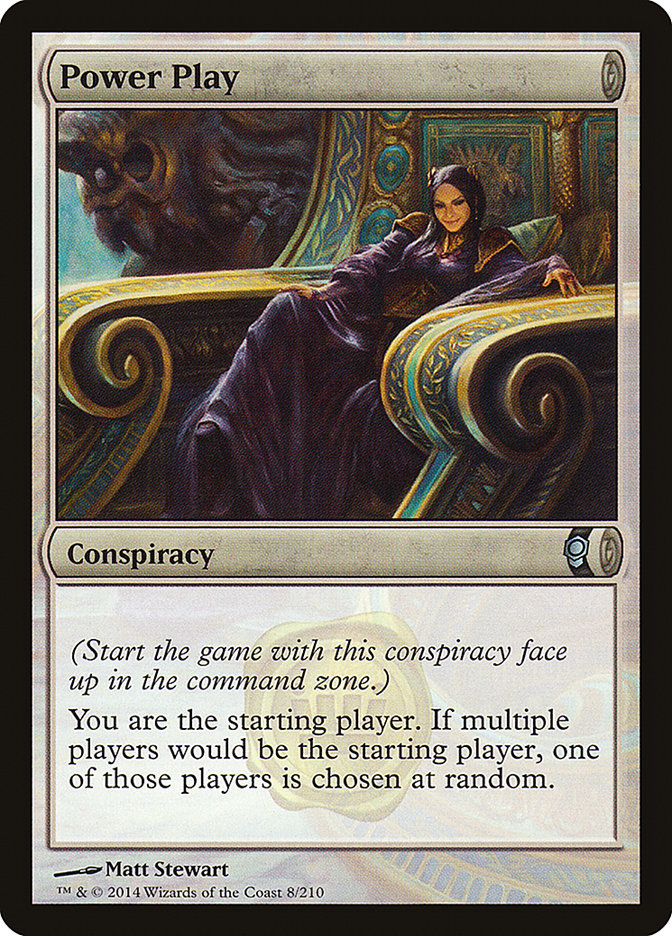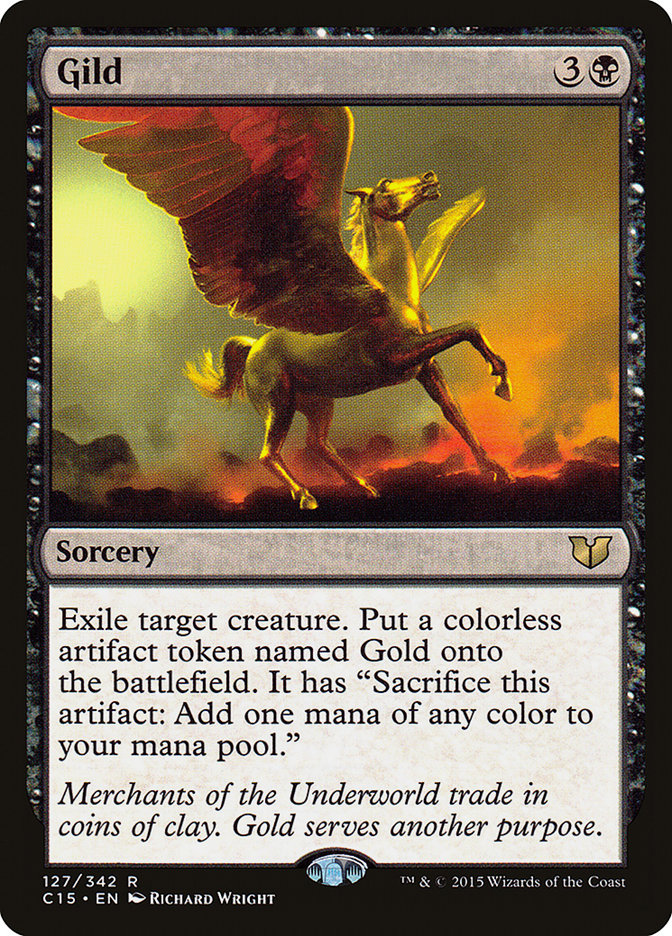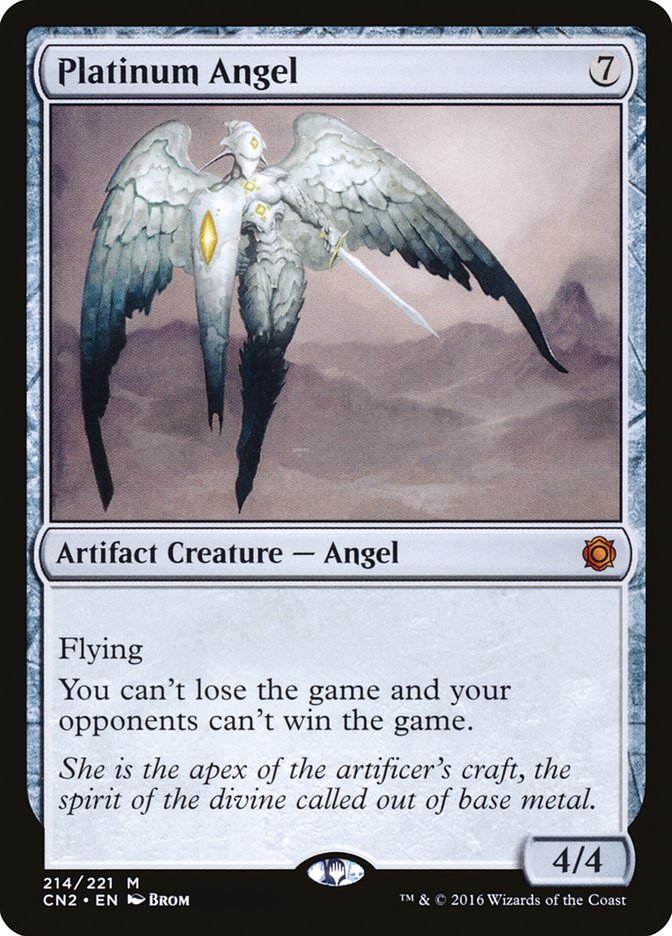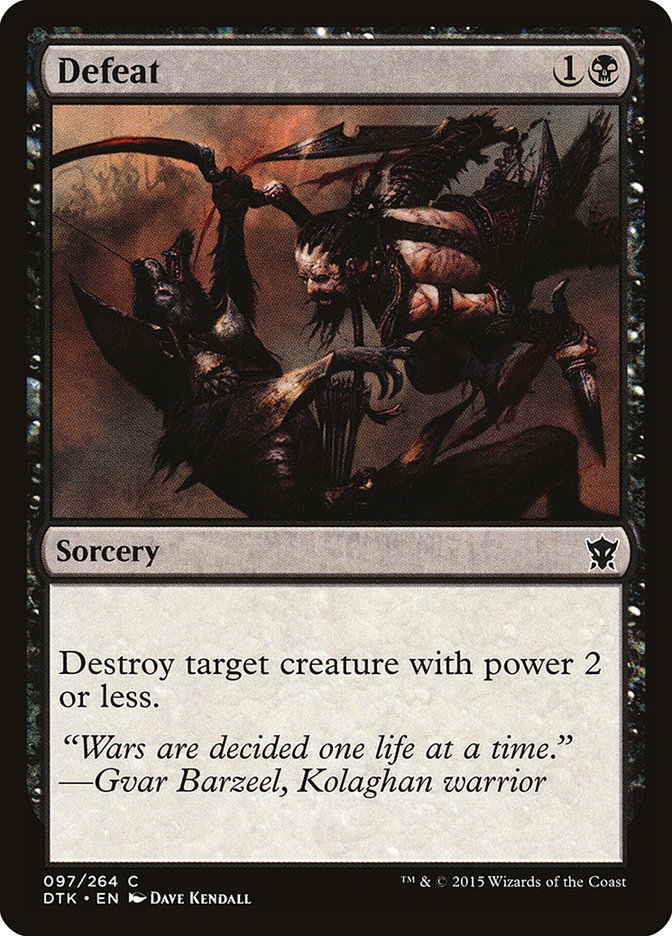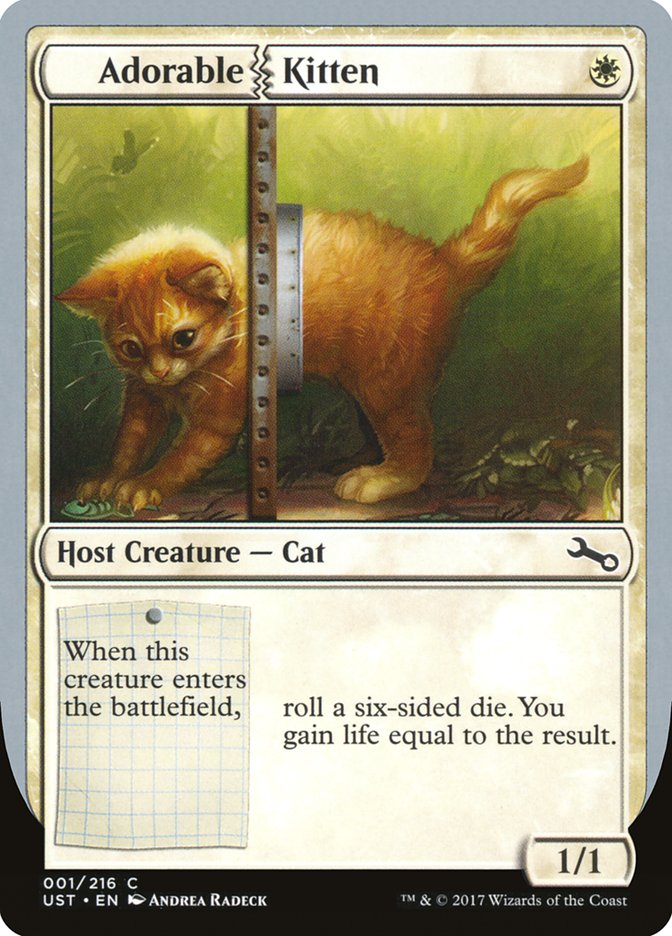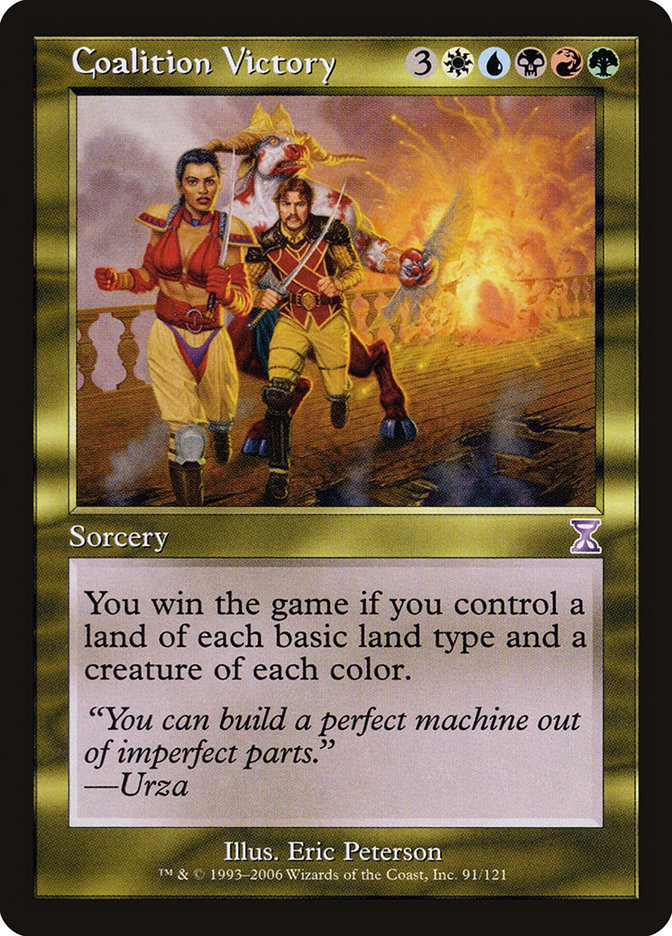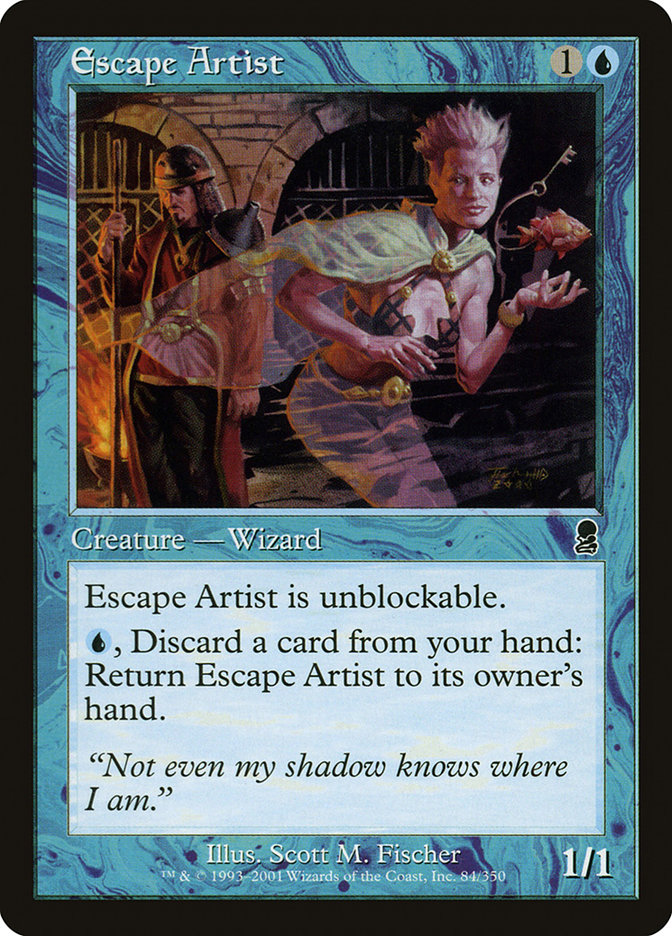When you’re living day-to-day, it’s easy to get caught up in where you are now and forget where you were. Three years ago, I had zero Pro Tour invites. Today, I’m a Platinum Pro Tour Champion.
Life is crazy.
In 2014, I took an internship with Wizards of the Coast. After making Top 8 of a Pro Tour for the first time, I decided to try to hit Platinum with my newfound wealth of Pro Points. In hindsight, I’d say it was a mistake because I missed and was out hundreds of hours and thousands of dollars, but realistically I would make the same decision again.
That near miss was painful, a fact I wasn’t really willing to admit to anyone. Wizards of the Coast knew my narrative and knew they could probably swoop in and offer me a job. They were right and I happily took the internship.
At one of my last tournaments, Dave Shiels yelled at me after hearing that I took the job.
“You’re an idiot!”
“Why? This is a great opportunity and is probably…”
He cut me off. “You’re not done yet!”
“How could you possibly think that?”
“I just know. Trust me. You’re not done.”
I laughed at him.
Dave’s a smart dude, though. After six months, I left my internship to return to playing Magic full-time.
My return was anything but glorious. I was fired up and ready to get back to slaying my fellow mages, but it was more difficult than I ever could have anticipated. The scant six months I spent away from tournaments made me incredibly rusty. While in-game, my mind was clouded by fog. Processing information on complex battlefield states didn’t come easily anymore. I punted more games on camera during that rust period than any other time in my career. It wasn’t pretty.
“Is this really how it’s going to be? Did I make a mistake by leaving my cushy job?”
More than anything, I wanted to get back to Gold level. When I really wanted to qualify for a Pro Tour, I only failed a handful of times. Hitting Gold was something I never missed if I both cared and attended tournaments. Obviously that would be much easier if I wasn’t starting from zero Pro Points, zero invites, and a ton of rust to shake off, but it was the situation I was in.
All I really wanted to do was play in the Pro Tours. My motivation for that was threefold.
1) Pro Tours are the most fun, most challenging tournaments to play in.
2) Grand Prix were less fun for me. Constant traveling wasn’t something I looked forward to, nor were venues cramped with 2000 people. My anxiety had slowly gotten worse over the last few years and it had a hugely negative effect on my experiences. If I could play in Pro Tours, nothing else, and spend that time making additional content, I would happily do it.
3) Pro Tours were the thing I hadn’t conquered yet. I don’t need to display actual mastery to make myself happy, but a certain level of competence was necessary. While I had my moments, I hadn’t demonstrated anything close to the consistency I felt like I able to achieve.
So, where to start? No matter what, it was going to be tough because I was effectively starting from scratch. A while ago, I thought doing a video series where I take a new Magic Online account from 1600 to 1900 Constructed, but from zero to Gold? This was something else.
I looked at the PPTQ and Magic Online PTQ schedule, as well as flights to various SCG Tour and Grand Prix stops that looked like they’d be fun. Being privileged by having so many good tournaments to go to meant I was going to take advantage of it.
After not playing for six months, sitting at home watching coverage most weekends, I was fired up.
I missed doing content too, probably way more than I thought I was going to. Putting out great, creative content was a huge driving factor for me. Since my return, I’ve taken way more risks than I ever did before and it’s paid off massively. Whatever fears I had about writing wonky theory pieces or putting personal stuff out there was quickly dispelled, and I’m very pleased whenever I get a chance to write more of that stuff.
If my legacy is writing solid, relevant strategy pieces every week, that’s great. However, if I end up with some timeless pieces that people link to repeatedly, that’s perfect.
I played in as many PPTQs as I possibly could. It took me four or five before I even made Top 8 of one of them, but I happened to win it. Go Jund! By the time the RPTQ rolled around, I didn’t even need the invite anymore due to being Silver, but I played anyway to get that sweet Liliana of the Veil promo.
At one point, I got the good news that Wizards of the Coast would award me a special invite because I lost three invites from my Gold status when I started working with them. It was a nice gesture, but I ended up not really needing it.
Pro Tour Magic Origins qualified me for Pro Tour Battle of Zendikar, and my Top 50 finish there gave me some pro points to work with, eventually nabbing me Silver. A Top 8 at Grand Prix Detroit got me another invite, and despite bombing out of Pro Tour Shadows over Innistrad and Pro Tour Oath of the Gatewatch, a 12-3 finish at Grand Prix Charlotte locked me for Gold in 2016.
I kind of limped over the finish line and my Pro Tour results sort of went to hell toward the end of the season, but I still hit Gold, which was the goal for the season. Throughout the course of my career, I’ve typically been able to hit the Gold-equivalent level regardless of the Pro Point requirements. It’s difficult for me to tell if it’s easier these days, maybe with more Pro Points in the system, more tournaments.
Shortly after Pro Tour Battle for Zendikar, I went through a breakup and moved back to Roanoke, VA. I’m still proud of myself for how quickly I was able to remove myself from the situation and immerse myself in tournament Magic. I shifted seamlessly back into my old life. The negative feelings associated with the whole thing fed me for the next six months.
When I lost in Top 4 of the Magic Online Championship Series in 2016, I was satisfied with the overall result. Even though I played my damn heart out against Ulanov, had no expectations going in, and bagged a nice $9,000 weekend, it came with a haunting melancholy feeling.
My tournament started in the dumps and I slowly crawled my way out. I should never count myself out of a tournament until I’m literally out. It can and does happen, even if you’re 1-3. It wasn’t that I felt like I didn’t “deserve” to be in those Top 8s, but it felt like I shouldn’t be allowed to make a final cut if my record was ever as bad as 1-3 or 0-2. Whenever I slipped into Top 8 at an Invitational at 12-4, I felt like I stole something.
Anyway, the winner of the MOCS was elevated to Platinum for a year and a half. Similarly to winning a Pro Tour (which also gives you Platinum, heh) or making the Hall of Fame, it wasn’t something I ever felt like I could achieve. It wasn’t about losing or getting unlucky — It was the thought that the MOCS was probably the closest to Platinum I was going to get.
It’s not even about the money, although that is definitely nice. It’s a status symbol, as is having that (1) next to your name.
“Are they good?”
“Well, they are Platinum…”
It’s easy for your opinion of someone to be based on their latest results. For example, it wouldn’t surprise me if people think Seth Manfield is the best player in the world at the moment. Seth won Pro Tour Ixalan and made Top 8 of back-to-back Grand Prix in different formats. He’s also currently got the (1) next to his name on coverage and it’s not close.
Did something change in the last six months that suddenly made Seth better than Yuuya or Owen? Did Huey’s Worlds run suddenly mean he was better at Magic than he was a week earlier?
That narrative is incredibly reductive, but it’s the world we live in and I’m susceptible to it too. Being able to label people can be useful.
Anyway, at Pro Tour Gatecrash, I was three matches away from Platinum and at the MOCS I was two. I was inching closer, but those shots don’t come up very often. Sure, I could potentially have a great season to hit Platinum without a single big finish, but it seemed unlikely, given how few invites to Pro Tours I had.
Not winning that MOCS may have been the greatest thing to ever happen for me.
How I Got There
Clearly something changed after I left Wizards of the Coast. Maybe it took a while before it actually showed in my results, but I’m a better, stronger version of myself.
This is probably the third time I’ve mentioned this in my articles, but I love a good “I told you so.”
When I was in “starting from zero” phase, a close friend of mine was trying to tell me staying on the Pro Tour was too difficult, so he wasn’t going to try anymore. My reply was, “Watch me.”
More than anything, I wanted to show that person it was possible.
Passion
When I was playing Magic every weekend on the SCG Tour, it was easy to take my situation for granted. That was just my normal life and it was easy to grow complacent. When I joined Wizards of the Coast and couldn’t play tournament Magic anymore, I finally realized how much it meant to me.
Magic doesn’t just give me a competitive outlet; it also occupies a ton of my brain space. My mind doesn’t really turn off, so having something I can constantly be thinking about is a huge boon. I would go to work at Wizards of the Coast, basically spend my time making Magic cards worse (which, ya know, is a gross understatement, but not really far from the truth), and I’d come home and sort of twiddle my thumbs waiting until it was bedtime.
My day-to-day work was great, and especially once sets I worked on started getting previewed, it gave me a great sense of pride. I could have easily spent time at home thinking about work, but we were encouraged not to in order to prevent burnout, which was a good idea. I read some books, played some video games, petted some cats, and watched hella TV shows, but that wasn’t satisfying in the same way that thinking about high-level strategy was.
When I could finally play tournament Magic again, I realized how much I enjoy Magic all over again. Hopefully I never take that for granted again.
Motivation
My motivation and goals lined up with my work ethic, and once the rust from not playing in tournaments wore off, a bunch of good results fell into my lap, including first place at Pro Tour Amonkhet.
If you take anything away from this article, let it be that in order to reach your goals, your output has to match (or exceed) how lofty the goals are.
Passion fueled my motivation to succeed, and similarly, I didn’t want to waste more time.
Trying New Things / Learning
Expanding my range wasn’t necessarily going to translate to better results, but it was definitely a flaw in my approach that I could easily fix. Maybe I’d miss an opportunity to play aggro when it was good. At the very least, by not working on aggro decks, I was less likely to realize when aggro was actually a good choice.
In the last three years, and maybe because of also playing games like Hearthstone and Shadowverse, I’ve become a big fan of aggro again.
Failure
Failure (and the disappointment that comes along with it) is one of the best things that can happen to you. It helped shape my expectations and tempered my work ethic, as failure was something I wanted to experience often. Owning up to failure is a powerful tool that let me take blame and ownership of it, which will in turn helped me realize most things are under my control. Placing blame elsewhere is a solid defensive tactic in the short term…if all you’re looking to accomplish is feeling slightly worse about yourself and your situation.
If you want to achieve something, you have to take as many shots as possible. That’s how I got onto the Pro Tour in the first place and how I got back after my sabbatical: I went to as many qualifying tournaments as possible. You can’t make shots you don’t take, etc.
Setting a goal and missing it can be painful, but now I’m more equipped to deal with that disappointment and more willing to take risks. I’ll also less hung up on all the disappointment I suffered in my childhood.
These days, my motivation is at an all-time low and my goals are nonexistent. If you’re trying to succeed in competition, that’s not a recipe for success.
It’s possible that if I won the MOCS and hit Platinum, that lack of motivation would have set in earlier and I wouldn’t have won Pro Tour Amonkhet. My general lack of motivation was in place around Pro Tour Amonkhet. It didn’t feel any different than I do now. So maybe if I won the MOCS, I’d be hyper-confident and would have won two Pro Tours. Hypotheticals are mostly silly.
Even though I’m kind of in a slump at the moment, the good news is that if I did it, anyone can. Obviously I’m privileged in being connected, living in the US, and having the time and money to spend traveling to tournaments, but I wouldn’t necessarily say I needed each of those things. You could also go from zero to Platinum.
What Now?
It’s no wonder a second PT Top 8, a MOCS T4, and second at US Nationals all happened after I left Wizards of the Coast. My resolve and main driving force after leaving Wizards of the Coast wasn’t just to succeed at the Pro Tour level, but in all areas where I’ve generally underperformed. For the first half of 2016, I cashed over 90% of the weekends I played tournaments. There’s never been a streak like that in my life.
In a lot of ways, I’m a completely different person pre-Wizards of the Coast and post-Wizards of the Coast. Post-Wizards of the Coast me can be a stone-cold killer when I’m “on,” in flow, have the fire, or whatever you want to call it. That killer instinct I had at PT Origins is something I desperately wish I could bottle and sell. Nothing in the world mattered except winning.
For everything I did right, in the first part of my career, I did a thousand things wrong. I can skate by some of the time, but if I want to actually excel, I need to put more work into it, even now.
Motivation is a huge question mark, though. If I struggle to find motivation, that means I need to temper expectations. Winning should be its own reward, but for whatever reason it’s not that important to me at the moment.
So far this year, I have 14 Pro Points, but zero of those are from Grand Prix. In 2015, I went 12-3 or better at six of eight of the first GPs I played in. In 2017, I’ve dropped from most that I’ve attended at 5-2. While I could try to hit Platinum again, it won’t come without a good Pro Tour result, so I’m shooting for Gold unless something nice happens.
At some point, there will be a drive to get Pro Points from GPs, but it doesn’t seem imperative at the moment. I would love to get that drive back, but awkwardly enough, hitting Platinum took away what I was fighting for. For me to get that killer instinct back, I need new goals, but nothing seems worth the effort.
Having better stats is something that drives me to some degree, but I also tanked so many tournaments in my earlier years that my win rate isn’t indicative of anything and it would take years to bounce back. The Top 25 isn’t sustainable for me, especially since it has no real lasting impact.
What am I fighting for?
Maybe I need a rival or something. It seemed to fuel Josh Cho’s motivation on his way to Gold last season, so why not try it? There are plenty of good options.
Paul Rietzl and I used to get paired in a lot of tournaments in the early 2000s. Initially he could never beat me. Then the tables turned, and then he retired when we were dead even. Since he’s come back, we’ve played once and he smashed me in a match I absolutely could have won. He outplayed me. Now he’s in the Hall of Fame and finished one match win higher than me in basically every Grand Prix we played during 2015. I also lost a bet to him for $600.
Owen Turtenwald and I used to be Midwest kids chatting on AIM talking about what deck we were going to play in the upcoming PTQ.
Luis Scott-Vargas and I became friends through an extremely absurd set of circumstances surrounding his early Pro Tour appearances. I also hate puns.
Someone might point out that, in order to be rivals, you have to be of a similar skill level, and I clearly don’t stack up against these Hall of Famers. I’d rather aim high. Cho’s choice of rival was Cedric Phillips, which certainly wouldn’t have done much for me.
Magic is a mental game and I’m figuring out what needs to be going on inside my head to be successful. When the other side of my life has me down, sometimes I can’t win. My mind is occupied with other things and that translates into me making poor decisions. For the most part, I’m pretty good at separating Magic life from “real” life.
In my younger days, there were definitely moments where Magic was the thing that made me unhappy. At that point, a self-fulfilling prophecy was created where I thought, if I lost enough, I could finally give up Magic and do something productive.
These days, I know exactly what Magic is to me and a big part of that is an escape. If I’m sad or angry at something in real life, that fires me up. My life has been pretty dope as of late, and if there was ever a problem, it’s never anything I can’t handle.
Playing well and learning used to be my driver for each tournament, but I’m disenchanted by the idea of traveling every week. Those things are still motivators, but winning isn’t. Maybe I went too far down the “results don’t matter” train of thought.
Fighting just for fighting’s sake is nice, but it comes and goes. With my emphasis on being a positive force in the community, that takes precedence over my own desires. Winning is great, but it’s currently losing out to helping other people have a good time.
I care about Magic. Creating content and meeting awesome people is going to keep me around for a long time. I just need to find my next target.


